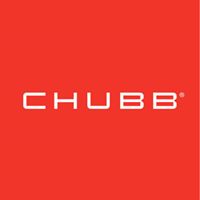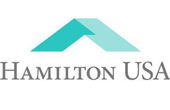**Not all carriers available in all states. Additional carriers may be available. Some property and casualty carrier access provided through ICA.**
HOMEOWNERS INSURANCE
Typical Homeowners policies require the home to be owner-occupied and for personal use only. However, there are exceptions for certain home businesses, trust homes or purchaser-occupant contracts.
There are several coverages, policy forms and policy options that impact the policy.
COVERAGE
Dwelling (Coverage A)
Pays for damage to your house and the structures attached to your home.
Other Structures (Coverage B)
Pays for damage to fences, sheds, freestanding garages, guest houses, and other structures not attached to the home.
Personal Property (Coverage C)
Reimburses for the value of possessions, which include furniture, electronics, appliances and clothing that is damaged or lost.
Loss of Use (Coverage D)
Pays some of the additional living expenses while an insured home is being repaired for a covered loss.
Personal Liability (Coverage E)
Covers financial loss if sued and found legally responsible for bodily injury or property damage to someone else.
Medical Payments (Coverage F)
Pays medical bills for people hurt on the covered property or hurt by pets.
Homeowners policies do not cover flood damage so depending on the home location, you may qualify for Flood Insurance through the National Flood Insurance Program or through a private insurer. If the home is in a flood plain, most mortgage lenders require the insured to purchase flood insurance.
To be properly insured, coverage should equal the full replacement cost of the home. Replacement cost is not the same thing as the value of the home or the purchase price of the home. The replacement cost is the cost to rebuild the home or fully repair damages using similar materials of kind and quality. The replacement cost can be much higher than the purchase price or market value. It is important to keep the home insured for full replacement cost and never let it drop below 80% where the insurer may reduce the amount they will pay on a claim.
OPTIONAL ENDORSEMENTS
Guaranteed replacement cost on the dwelling pays to completely rebuild your home, while a personal property replacement cost endorsement pays to replace your personal property. A scheduled personal property endorsement (or “personal articles floater”) covers jewelry, furs, stamps, coins, guns, computers, antiques and other items whose value might be greater than the normal limits in the homeowner policy. An ordinance or law endorsement pays for the extra expense to rebuild your home in compliance with building codes and other ordinances or laws that didn’t exist when your home was originally built.
PREMIUMS
Insurers use several factors to determine premiums. Some of these factors include: cost to rebuild the home, materials home is made of (brick vs. wood), distance of home to a water source or fire department and the quality of fire protection services, age and condition of home, claims history of your home and homes in the area, coverage selection, deductibles, length of time with current insurer, credit-based insurance score (not applicable in all states), protection devices (i.e. smoke detectors, burglar alarm, sprinkler system, deadbolts, security for windows, etc.), wood furnace/wood stove, swimming pool, trampoline, and pets (some insurers won’t offer coverage with certain breeds of dogs).
DISCOUNTS
Many carriers offer multi-policy discounts for having home and auto with the same insurer.
PERSONAL AUTOMOBILE INSURANCE
A personal automobile insurance policy offers several types of protections referred to as coverage. Some of the coverage is required by law and others are optional.
COVERAGE
Bodily Injury Liability – certain minimum limits are required by law
Covers the injuries that an insured causes to someone else while operating a vehicle.
Property Damage Liability – certain minimum limits are required by law
Covers damages the insured causes to someone else’s vehicle or objects/structures hit by the insured vehicle.
Uninsured & Underinsured Motorist Coverage (Required in Some States – Must Sign to Opt Out)
Reimburses an insured if an uninsured or hit and run driver hits them. Underinsured motorist coverage pays when an at-fault driver doesn’t have enough insurance to pay for the insured’s losses.
Medical Payments
Covers the cost to treat injuries to the insured and their passengers, whether or not the driver is at fault.
Personal Injury Protection (PIP)-primarily available in “no-fault” states
Covers the cost to treat injuries to the insured and their passengers, whether or not the driver is at fault. It can also cover lost wages and funeral expenses.
Some states require personal injury coverage
Collision – This coverage is subject to a deductible
Pays for damage to the insured’s vehicle from a collision with another vehicle, object, pothole, or from rollover.
Comprehensive – This coverage is subject to a deductible.
Reimburses the insured for damage to their vehicle that’s not considered collision (i.e. theft, hail, wind, flood, fire, hitting animals, etc.)
Reimburses the insured for pitted, cracked or damaged windshields (some companies include windshield repairs in the policy with no charges to the deductible).
Additional/Optional Coverages
Towing/Roadside Assistance
Rental Reimbursement (During repairs for covered losses)
Loan/Lease Gap Coverage
PREMIUMS
Insurers use many factors to determine premiums. Some of these factors include:
Driving record from the prior 3-5 years for all drivers on the policy
Age
Gender
Marital status
Type of vehicle
Credit-based insurance score (not applicable in all states)
Urban/rural area
Prior insurance coverage amount and Carrier
Vehicle usage
Vehicle annual mileage
Previous claims
Liability limits (most states have minimum liability requirements)
Deductibles for comprehensive/collision (standard is $500 or $1,000)
DISCOUNTS
Many carriers offer multi-policy discounts for having home and auto with the same insurer and multi-vehicle discounts are also often available. Other discounts vary by carrier and state but may include: advance quoting, airbags, anti-lock brakes, anti-theft devices, usage of vehicle telematics, defensive driving courses, good student discounts (3.0 GPA), and mature driver (55+).
BOAT INSURANCE
A boat purchase is likely to be one of your largest investments aside from your home and possibly your vehicles. While some believe that boats are covered under their standard homeowners policy, this may only be true for smaller boats and there are limitations. As a boat owner, obtaining a separate boat policy is strongly recommended to obtain the proper coverage.
Like all insurance, boat protection varies widely between companies. Boat insurance works similarly to car insurance in that it covers:
Bodily Injury Liability
Covers the injuries that an insured causes to someone else. Medical bills, pain and suffering, defense costs and lost wages may all be covered under a boat insurance policy.
Property Damage Liability
Covers damages the insured causes to someone else’s property. This could be damage to another boat, dock or other structure.
Physical Damage Coverage
Covers damage to your own boat and its trailer. This can be paid out in three different ways:
Actual Cash Value: The market value of the boat and/or its parts
Agreed Value: Insured determines the amount of coverage when the policy is first written
Replacement Cost: The boat will be replaced with the same type of new boat. This is usually only available for boats less than 2 years old.
The cost for boat insurance varies based on the value of the boat, its length, the type (sail or power), mooring location, intended area of navigation and how high a deductible is chosen. Like other types of insurance, the premium can be decreased by increasing the deductible.
WHAT IS AN UMBRELLA INSURANCE POLICY & WHY DO I NEED IT?
A Personal Umbrella insurance policy, as its name implies, acts as an “umbrella” to provide extra liability insurance in the event a lawsuit exceeds the levels of coverage on your property, auto, or recreational vehicle policy.
While many believe an umbrella policy is only geared towards the wealthy, this is simply not the case. In this day and age, anyone can be sued for just about anything. It’s not all about what and how much you own, there are other factors that put you at risk including:
Young or older drivers in your household
Swimming Pool, Spa, Hot Tub or Trampoline on your premises
Pets/Animals/Exotics – even non-aggressive pets can get out and cause liability
Hold non-compensated positions (board member, council member, etc.)
Employees (In/Out Servants)
Standard umbrella policies typically range from $1,000,000 to $5,000,000 with higher limits available. To qualify for a policy, you will need to have certain minimum levels of liability coverage on your property and vehicle policies.
Policy premiums can start as low as $200.*












